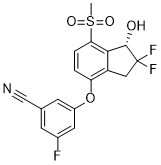High angiotensin I-converting enzyme inhibitory and antioxidant activities found in active Clofentezine peptides derived from fish or squid skin gelatins. Two cryptic bioactive peptides, C2and E1, have been isolated from bovine tendon collagen. The peptides supported faster wound closure than collagen under normal as well as stressed conditions. Oral intake of specific bioactive CPs reduced skin wrinkles and had positive effects on dermal matrix synthesis. Hydrolyzed collagen intake increased bone mass in growing rats trained with running exercise. Osteoporosis increases bone fragility and susceptibility to fractures as a result of low bone mass and deterioration of the bone microarchitecture. In recent years, CP compounds have been receiving scientific attention as potential oral supplements for the recovery of osteoarticular tissues. Osteoporosis rats treated with a collagen hydrolysate extracted from Sika deer velvet showed significant elevation of their bone mineral density levels compared with osteoporosis rats treated with retinoic acid. A food supplement of hydrolyzed collagen improved the compositional and biodynamic characteristics of vertebrae in ovariectomized rats. Administration of shark skin gelatin was able to increase the bone mineral density and type I collagen contents of ovariectomized rat femurs. Oral administration of CP compounds improved the effects of calcitonin for postmenopausal osteoporosis patients. Many patients with osteoarthritis or other types of arthritis have reported that their knee pain was reduced and other symptoms were significantly improved after treatment with 10 g/day of pharmaceutical-grade CP compounds administered orally for 6 months, indicating that CP compounds can potentially help osteoarthritis patients. Although CP compounds, as bone health supplements, are known to play a role in the treatment of osteoporosis, the issue of whether bovine CP compounds promote the proliferation and differentiation of osteoblasts remains uncertain. MC3T3-EI preosteoblastic cells have the capacity to differentiate into osteoblasts and osteocytes and form calcified bone  tissue in vitro. In the present study, we first confirmed the effects of bovine CP compounds on the proliferation of MC3T3-E1 cells by MTT assays and cell cycle alterations by flow cytometryscanning. We also analyzed the differentiation of MC3T3-E1 cells after treatment with CP compounds at the RNA level by realtime-PCR and at the Clofazimine protein level by western blot analysis for runt-related transcription factor 2, a colorimetric pnitrophenyl phosphate assay for alkaline phosphatase, and ELISA for osteocalcin. Finally, we examined the mineralization of MC3T3-E1 cells using alizarin red staining. We believe that our findings provide a molecular mechanism for the potential treatment of osteoarthritis and osteoporosis in vitro. This study has demonstrated for the first time that CP compounds with molecular weights of 0.6�C2.5 kDa isolated from bovine bone can promote osteoblast proliferation and differentiation in vitro. In the present study, we first found that bovine CP compounds markedly increased osteoblast growth in a dosedependent manner. This result is consistent with a recent report that collagen hydrolysatewith molecular weights of,3 kDa isolated from porcine skin gelatin stimulated the proliferation of human osteoblastic cell line MG63 cells.
tissue in vitro. In the present study, we first confirmed the effects of bovine CP compounds on the proliferation of MC3T3-E1 cells by MTT assays and cell cycle alterations by flow cytometryscanning. We also analyzed the differentiation of MC3T3-E1 cells after treatment with CP compounds at the RNA level by realtime-PCR and at the Clofazimine protein level by western blot analysis for runt-related transcription factor 2, a colorimetric pnitrophenyl phosphate assay for alkaline phosphatase, and ELISA for osteocalcin. Finally, we examined the mineralization of MC3T3-E1 cells using alizarin red staining. We believe that our findings provide a molecular mechanism for the potential treatment of osteoarthritis and osteoporosis in vitro. This study has demonstrated for the first time that CP compounds with molecular weights of 0.6�C2.5 kDa isolated from bovine bone can promote osteoblast proliferation and differentiation in vitro. In the present study, we first found that bovine CP compounds markedly increased osteoblast growth in a dosedependent manner. This result is consistent with a recent report that collagen hydrolysatewith molecular weights of,3 kDa isolated from porcine skin gelatin stimulated the proliferation of human osteoblastic cell line MG63 cells.